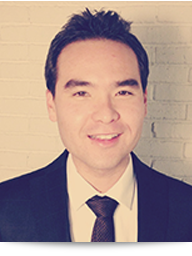 |
|
Reflections on Polyclinic Rotation
By Dr Andrew Green, Class of 2012
I believe that one's experience as a clinician will never be complete without having gone through primary care. It was in this polyclinic rotation that I realized the true meaning of national healthcare - to provide caring service for a healthy nation. Primary care centers, especially polyclinics in Singapore, challenge doctors to use their heads and hearts in equal doses in a cost-effective time frame. The enormous number of patients that flood the polyclinics daily can be terrifying for a greenhorn doctor like myself. Will I be able to meet the numbers? Even if I do, will I be a safe doctor? If I can be quick and safe, will the patients be satisfied with my hasty consultations?
|
|
In the first week I was at Toa Payoh polyclinic (TPY), I cursed myself every day for not being smart enough, caring enough, fast enough... and the list of my inadequacies goes on. I would ask questions for every single thing I was unsure of - a process that would slow down the work of other doctors. I was fortunate to have such patient mentors as Dr David Ng and Dr Elaine Tan. They were always happy to take me under their wings, teach me new things and share true nuggets of their vast experiences as primary care doctors. Slowly but surely, I started to feel comfortable albeit with much caution, as I know that complacency can bring about one's own downfall.
As a budding preventive medicine specialist, I realized the importance of my presence in a polyclinic setting is twofold: to be a proficient practitioner as well as a detective with his ear on the ground and sharp eyes to scoop up the good, the bad and the ugly of primary care in Singapore. Let us be frank: the polyclinic system in Singapore is far from perfect and I doubt it ever will be. Before the polyclinic, I was a hospitalist and there were many things that I thought the primary care could have done better. For instance, "stupid referrals" or "missed diagnoses". Now that I am in a polyclinic, I understand its limitations. What if there were smaller doctor to patient ratio? What if the doctors had more training time instead of being overworked? What if the allied health worker could step up and take on more responsibilities? What if more medications were subsidized or covered by Medisave? Would "stupid referrals" still be stupid if these issues were addressed? Would the rate of misdiagnosis be smaller if these questions were answered?
I am proud to have been a part of TPY, where the doctors and allied health team always work together to try to improve the system. Being aware of what is wrong is the first step to improvement. They are vocal not just about shortcomings but also about solutions. The Great Wall of China started off with one brick; with the right mindset and motivation, I believe these small improvements will make a difference in the future. The question is whether these small improvements are able to sustain the ever-growing and ever-demanding patients we have all sworn to lead, help and cure? Perhaps a change at the national level will be able to fully address these pertinent matters.
In short, I am thankful for the good experiences I've had in primary care. I will bring them with me as examples to apply in other institutions I will be posted to (as applicable, of course). I will keep the bad and the ugly in mind to ensure that in the future, something can hopefully be done about them.
|
